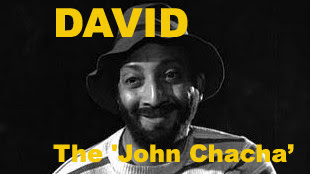English Titles of Hindi films is not a new phenomenon in Hindi Film Industry. During the silent film era, English Titles were very common There was a film with the title 'The Enchanted Pills' directed by S N Patankar in 1920 and another hit film was 'Lady Teacher' released in 1922.
Today, spoken English has become a mix of Hindi and English. In our daily conversations, we use both languages so English titles are not taboo to common people. In fact, English titles connect with today’s public.
The title of a film actually depends on what the film is all about. If the story connects well with the English title, I guess any director would go ahead with it. Let us take the title 'No One Killed Jessica' which was based on the Jessica Lal murder case, the film could not have had a better title than this.
The title of a film is very important, it attracts people to see the film but if the film is good, it will be a successful film but if it is bad then the Title of the film can not help. Let's take the example of Ranbeer Kapoor's film 'Bombay Velvet'. having an English Title, but failed miserably at the Box Office.
In 2019, 'War' starring Hritik Roshan and Tiger Shroff was the biggest hit and The Accidental Prime Minister was a disaster. Gully Boy starring Ranvir Singh & Alia Bhatt was a hit on the other hand Line of Descent of Abhay Deol was a flop.
After independence in 1948, the film '11 O Clock' with English title was a hit and the same year a film called 'Hip Hip Hurray' starring Nirupa Roy was a flop. It was seen that most of the films of Fearless Nadia had English Titles like Miss Frontier Mail, Diamond Queen, Jungle Princess, and Jungle Queen.
Dev Anand also appeared in many films with English titles. Stage, Taxi Driver, Ferry, House no 44, Pocketmaar, CID, Paying Guest, Love Marriage, Guide, Jewel Thief, Gambler, Warrant, Bullet, Darling Darling, Gangster,Return of Jewel Thief, Censor, Love at Times Square, Mr Prime Minister, and Chargesheet
Dilip Kumar appeared in only 2 films having English titles, Footpath and Leader. Raj Kapoor in only one film 'Around the World'
Madhur Bhandarkar has a fascination for keeping English Titles such as Page 3, Corporate, Fashion, Traffic Signal.Jail and Calendar Girl.
Salman Khan has many hit films with English titles like Hello Brother,Love at Times Square, Lucky: No Time for Love, No Entry, Partner,Wanted,Ready, Bodyguard,Kick, Tubelight and Race 3


















